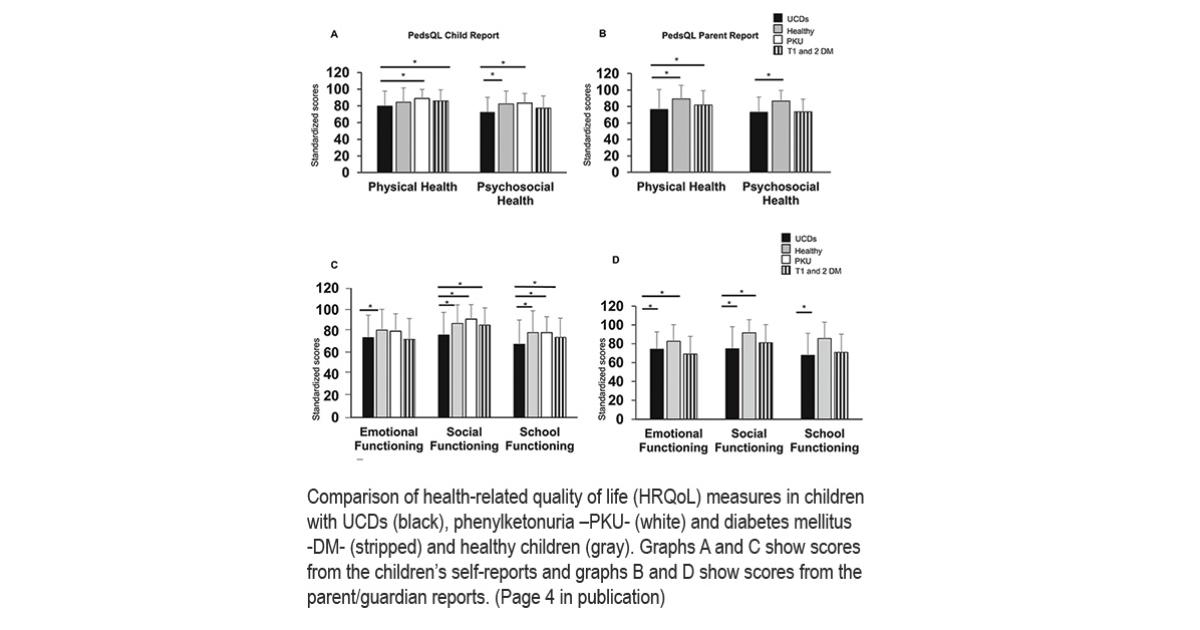Murali CN, Barber JR, McCarter R, Zhang A, Gallant N, Simpson K, Dorrani N, Wilkening GN, Hays RD, Lichter-Konecki U; Members of the Urea Cycle Disorders Consortium; Burrage LC, Nagamani SCS. Health-related quality of life in a systematically assessed cohort of children and adults with urea cycle disorders. Mol Genet Metab. 2023 Nov;140(3):107696. Epub 2023 Sep 8. PMID: 37690181; PMCID: PMC10866211.
Urea cycle disorders (UCDs) affect the quality of life in both children and adults. Children face more challenges with physical and emotional health, while adults report worse mental health. The findings emphasize the need for better mental healthcare and tools tailored to meet the needs of people with UCDs.
Key Takeaways:
- UCDs can have a negative impact on the quality of life of both children and adults.
- Children with UCDs, on average, have lower physical health and psychosocial scores as compared to healthy children. Children can also have problems with emotional, social, and school functioning.
- Adults with UCDs, on average, have worse mental health scores but tend to have similar physical health when compared to healthy individuals.
This study focuses on how urea cycle disorders (UCDs) affect the quality of life. UCDs can cause repeated hyperammonemic (high ammonia) episodes, leading to neurological and physical complications. The research used surveys to measure quality of life in children and adults with UCDs enrolled in a long-term study conducted by the Urea Cycle Disorders Consortium (UCDC).
- Children's Quality of Life: On average, children with UCDs had lower physical and psychosocial health than healthy children, with older children facing more psychosocial challenges, like difficulties in school.
- Adult Mental Health: Adults with UCDs reported worse mental health compared to others, but their physical health was similar to the general population.
- Differences Among UCD Types: In children, quality of life was similar across UCD subtypes. However, adults with rare UCD types had worse physical health than those with other types.
- Hyperammonemic Episodes: In children, more hyperammonemic episodes was associated (i.e. had a relationship) with worse physical and social outcomes. Such an association was not noted in adults.
Although the study had some limitations, like missing data and surveys that didn’t fully account for UCD-specific challenges, it highlights the need for better mental health care, psychological support, and tools to measure the full impact of UCDs on physical and psychosocial quality of life.


